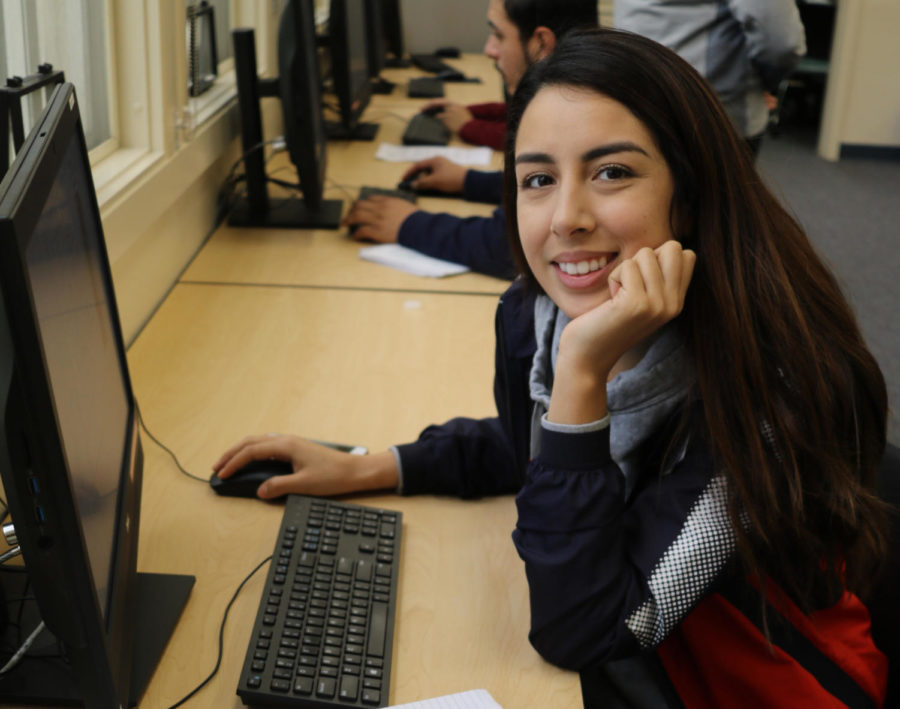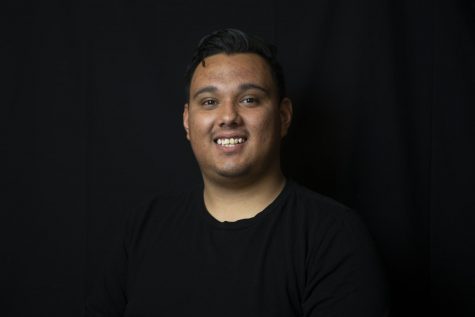For first-generation students like Cristal Lopez, 21, a sociology major at Santa Rosa Junior College, completing a college career is a challenging experience.
“Both my parents were unable to complete their basic education and as the oldest of three, they emphasized the importance of an education,” Lopez said.
First-generation students like Lopez struggle in finding motivation to attend school or don’t have the same support system as other students.
With learning communities like Puente and Connections, navigating the complexity of obtaining a degree is made easier because students have support networks.
Luz Navarrete, a former counselor, and Gloria de Blasio, a former English instructor, brought Puente to Santa Rosa Junior College in 1981. The program was designed to increase the number of MexicanAmerican community college students transferring to four-year universities.
Puente in English translates to bridge, and the program’s purpose is to help students build bridges with instructors, politicians and colleagues to make them successful in the future.
About 50 students apply to Puente every year and roughly 30 are accepted. The program offers counseling and English courses with designated staff who help students excel at the community college level.
Coordinator Guillermo Garcia is in his third-year of the program. Garcia is a Puente alumni from Fullerton Community College. “Echale Ganas,” Garcia said. “Never give up, keep motivated and don’t give up on your goals.”
Puente distinguishes itself from other programs by providing mentorships that guide students and planned visits to four-year universities during spring break.
“Puente helped me organize my academic plan and opened me to new opportunities, like going to SoCal and looking at universities,” said Saul Soriano, 21, a third-year Puente student and enology major.
Puente strives to give students that first step into college by giving them the support system and connection with professors.
“I have found people that will stick to my side during hard times, people who share the same ideas and share new perspectives of different topics,” said Denise Mendez, 18, a first-year Puente student with a psychology major.
The Puente program is designed to help students transfer, but does not have a settled calendar for students to transfer in the three year cap of the program.
The number of students applying to Puente is increasing each year, limiting the space for first-generation students.
“As a first-generation college student and as a Latina, primary and secondary education failed to expose me to my ethnic culture. Feeling like an outsider, I decided to join the HSI Connections Program during my first semester in College,” Lopez said.
“The emphasis on Latinx struggles, achievements, and diversity through open discussions, readings, and community service encouraged me to join the conversation outside of school. Through my participation in Latinx student panels, I was able to truly understand that so many students shared the same feelings I had during my childhood education.”
Puente and Connections are two different programs with similar goals.
“Puente has been very successful, so why not duplicate it in a different way but offer a little bit more to the students,” said Juan Arias, director for the Hispanic Serving Institute Initiatives, HSI.
Arias, among other colleagues, developed the idea of building a new program to help first- generation students transfer in three years or less.
“I’m motivated to continue my higher education because I want to be part of creating a college-going culture for people of color with a history of low educational attainment like myself,” Lopez said.
HSI or Connections is a learning community that started in 2015, and currently serves 219 students. Programs such as these help incoming first generation students and returning students navigate junior college en route to a four-year institute within three years.
“This spring semester we will have our first class graduating with an associates degree and/or transferring to a four-year college,” Arias said.
The Connections program offers counseling courses, English classes, math tutoring, academic counseling and classes that have reserved seats for Connections students only.
“There’s a lot of people who I share the same interest with. Talking to them made me keep going to school because we’re all going through the same and they keep me motivated,” said Monica Mendoza, 19, first-year Connections student.
Connections students bond and encourage each other to achieve. They effectively create connections and network with others.
“Connections has given me the confidence to meet new people. I have become friends with a lot of them, and I feel more confident with them,” Mendez said.
Juan Nuno, 19, a first-year Connections student said, “What keeps me motivated is teachers and students striving for success while working hard to get where they want to get.”
Connections program has its own space in Garcia Hall called MI CASA (Multicultural Innovation Center for Academic Success & Achievement), where Connections students can stop by to connect with other program students, get help, or access computers, printers, snacks, and coffee.
As for Lopez, she received her associate’s degree in social and behavioral science with highest honors last semester and will complete her sociology AA-T this semester. “I am beyond proud of my determination to make my parents, siblings and myself proud,” she said.




